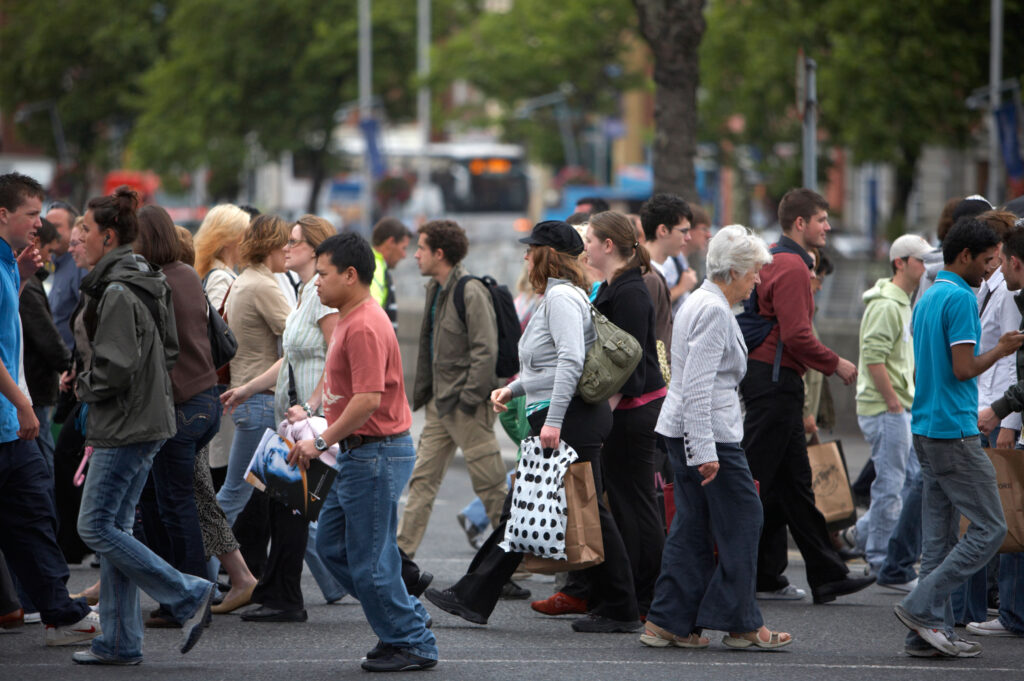
The Irish electorate have very high expectations around tax cuts and increased spending in the run up to Budget 2024. Expectations have increased due to both a tough year for many who have been heavily impacted by the cost of living crisis, coupled with the fact that it has been widely reported that government coffers are currently overflowing.
Despite a long-held narrative that many voters want prudent and sensible management of the economy, these two exceptional circumstances in addition to the fact that an election is perhaps only a year away, are driving expectations among voters that a splurge is coming, that may be difficult to satisfy.
This could lead to some pretty disappointed voters post budget day, further impacting on support for government parties who remain under significant pressure from Sinn Féin, riding high in the polls still some 10% ahead of their nearest challenger, with first preference support currently standing at 32%.
Just four weeks before the budget, half of all voters believe the government should use the extra funds that we have, to spend more. Thus, disagreeing that we should follow the advice of the Irish Fiscal Advisory Council and keep the next budget spending tight. Just over a third of voters (38%) agree that we should heed the caution of the Irish fiscal Advisory Council on overspending and its potential impact on further inflation.
Perhaps somewhat counterintuitively, it is those in older age groups, who are more likely to be living comfortably or at least making ends meet, who were most likely to believe that we should spend more of what we have while we have the opportunity. Less surprising is the fact that those who intend to vote for opposition parties, are also more likely to want to see increased spending. However, even those voting for the main government parties are relatively evenly split between following the fiscal advice or spending more.
These high expectations will potentially leave the government trying to please all, and possibly end up not really pleasing anyone. Despite voters’ desire for increased spending, the government narrative at this point is that they are trying to follow a balanced approach, spending a little more than the Fiscal Advisory Council would like, but also being seen to be prudent and careful. This makes sense given that the handling of the economy remains one of Fine Gael’s key strengths with its voters, and to a lesser extent for Fianna Fáil.
So where do voters believe that the government should be spending more?
Historically, the majority of voters have almost always expressed a preference for increased spending on public services vs personal tax cuts. It has however been argued that this position is somewhat influenced by social norms. In other words, voters feel they should say that this is what they believe or want to happen, even if secretly they still want some tax cuts for themselves.
For the first time, in the run up to this budget, we see a shift in opinion. When asked to choose between increased spending on public services vs personal tax cuts, support for prioritising tax cuts has risen to be level with that of spending more on public services.
This desire for tax cuts is very much focused among the squeezed middle, with a clear majority of those aged 35 to 54 in favour of tax cuts vs public spending. Those supporting Sinn Féin and independent candidates also have a majority in favour of tax cuts, with Fine Gael voters evenly split between the two, and Fianna Fáil voters marginally in favour of increased spending on public services.
A significant majority in favour of more spending on public services is only really seen among those voters supporting smaller parties such as the Green Party, Labour Party, Soc. Dems and PBP-Solidarity.
We can also see that the underlying or shy “Tax Cut” supporter still exists within these numbers. A quarter of those calling for increased spending on public services, also state elsewhere in the survey, that they will be disappointed if they don’t benefit personally from cuts in tax in the budget. This suggests that the underlying desire for at least some tax cuts among the public maybe even higher than stated, with many of course wanting both more spending on public services and a little tax cut for themselves as well.
The government coalition will have some job to do to appease all of these demanding and expectant voters at the budget, to the level they really feel they have benefitted personally, and still believe that government parties are fiscally responsible.